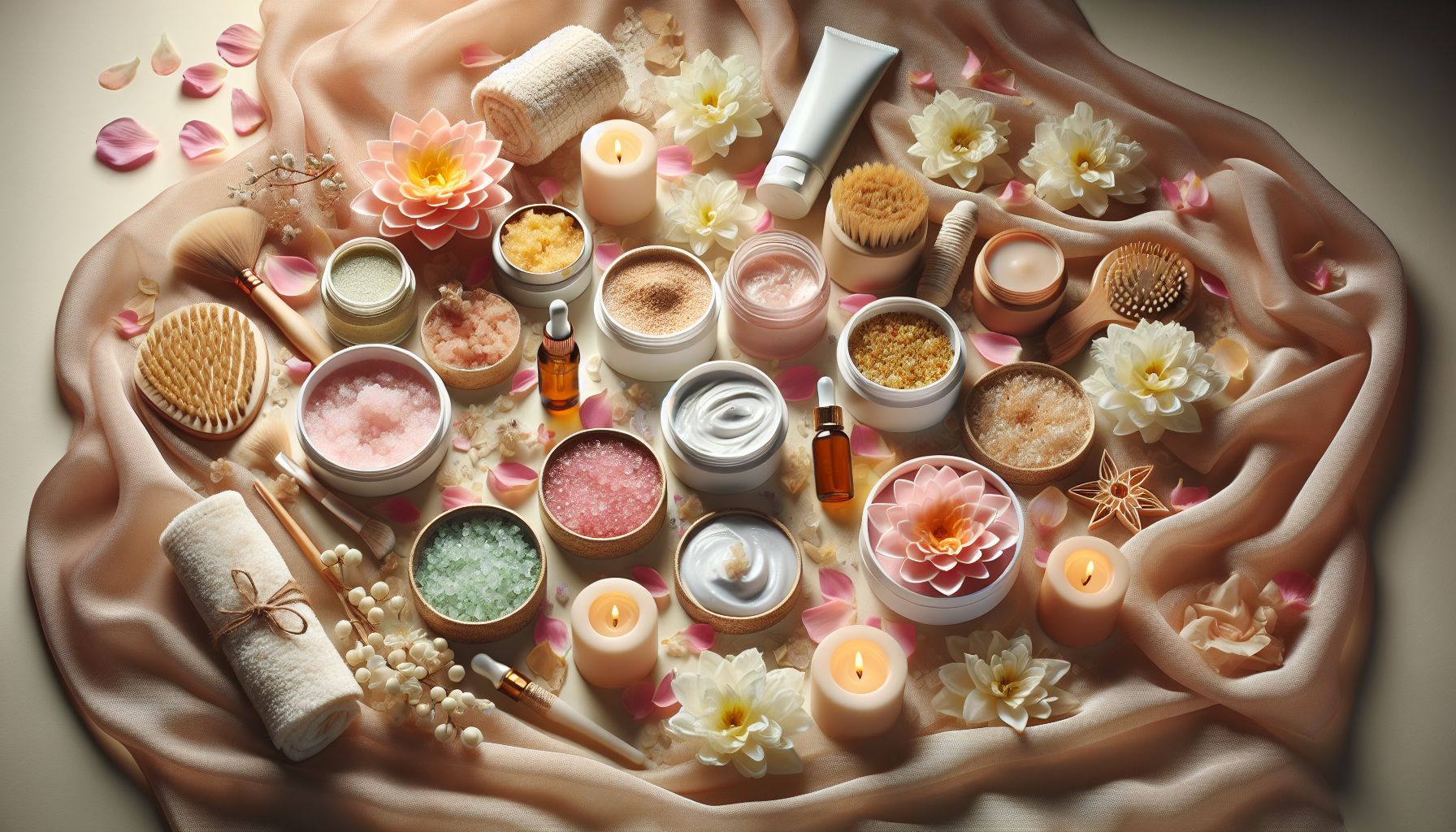Exfoliation is a key component in maintaining healthy and vibrant skin. It refers to the process of removing dead skin cells from the surface of the skin, which can prevent a multitude of skin issues and enhance overall skin appearance. This article will delve into the benefits of regular exfoliation, the different methods available, and how to incorporate it safely into your skincare routine.
Understanding Exfoliation and Its Importance
The skin undergoes a natural process called desquamation, where old skin cells shed to make way for new ones. However, these cells don’t always slough off effectively, leading to a build-up that can cause dullness, flakiness, and clogged pores. Regular exfoliation helps this process along, ensuring that the skin remains clear and rejuvenated.
Exfoliating can benefit all skin types and is particularly useful for addressing concerns such as:
- Acne and blackheads
- Skin texture and tone
- Signs of aging like fine lines and wrinkles
- Hyperpigmentation and sun spots
- Dry or flaky skin
Moreover, by clearing away dead skin cells, exfoliation can enhance the skin’s ability to absorb other skincare products, making them more effective. For an in-depth understanding of how exfoliation ties into overall Skin Health, AvixHealth provides valuable insights.
Types of Exfoliation
There are two primary methods of exfoliation: physical and chemical.
Physical Exfoliation: This involves using a scrub or tool to manually remove dead skin cells. Common physical exfoliants include face scrubs with granules, brushes, and microdermabrasion treatments.
Chemical Exfoliation: Chemical exfoliants use acids or enzymes to dissolve and loosen dead skin cells. These include alpha-hydroxy acids (AHAs) like glycolic and lactic acids, beta-hydroxy acids (BHAs) like salicylic acid, and enzymes from fruits like papaya or pineapple.
Each method has its own set of benefits and suitability for different skin types. For instance, those with sensitive skin might prefer the gentle nature of enzymatic exfoliation, while those with oily skin may benefit from the pore-cleansing properties of BHAs.
Benefits of Regular Exfoliation
1. Promotes Clearer Skin
Regular exfoliation can help prevent clogged pores, which are the precursor to acne and blackheads. By keeping the pores free of excess oil and dead skin cells, breakouts can be minimized. For more information on managing oily skin and preventing acne, Tips for Managing Oily Skin and Preventing Acne provides additional guidance.
2. Evens Skin Tone
Exfoliation can help fade dark spots and even out skin tone by accelerating the shedding of pigmented cells. This can be particularly beneficial for those dealing with post-inflammatory hyperpigmentation following breakouts.
3. Boosts Circulation and Lymphatic Drainage
The physical action of exfoliating can help boost blood circulation and promote lymphatic drainage, leading to a more radiant and healthy-looking complexion.
4. Enhances Product Absorption
With the top layer of debris and dead skin cells removed, skincare products can penetrate deeper into the skin, increasing their efficacy.
5. Stimulates Collagen Production
Regular exfoliation can stimulate collagen synthesis, which improves skin texture, elasticity, and can help reduce the appearance of fine lines and wrinkles. The Importance of Collagen for Skin Health and Youthfulness article expands on the role of collagen in maintaining a youthful appearance.
How to Exfoliate Correctly
While exfoliation is beneficial, it’s essential to do it correctly to avoid damaging the skin.
- Frequency: Depending on the exfoliation method and your skin type, it may be appropriate to exfoliate anywhere from once a week to every other day. It’s crucial to listen to your skin and not over-exfoliate.
- Technique: For physical exfoliants, use gentle circular motions and avoid scrubbing too hard. For chemical exfoliants, follow the product instructions carefully, and consider starting with lower concentrations.
- Aftercare: Always follow exfoliation with a moisturizer to soothe the skin and restore hydration.
For those looking for niche and specific resources on exfoliation techniques and benefits, the following are invaluable:
- A Dermatologist’s Guide to Exfoliation
- Clinical Efficacy of Facial Masks Containing AHAs and BHAs
- The Role of Exfoliation in Skin Health
Common Mistakes to Avoid
- Over-Exfoliation: This can lead to redness, irritation, and a compromised skin barrier.
- Using Exfoliants That Are Too Harsh: Opt for gentle formulas that won’t scratch or irritate the skin.
- Ignoring Sun Protection: Exfoliation can make the skin more sensitive to the sun, so it’s crucial to use a broad-spectrum sunscreen daily.
Integrating Exfoliation into Your Routine
A well-rounded skincare routine that includes exfoliation can significantly improve the health and appearance of your skin. Consider the following steps when integrating exfoliation:
- Cleanse: Begin with a gentle cleanser to remove makeup, oil, and dirt.
- Exfoliate: Apply your chosen exfoliant according to its instructions.
- Tone and Treat: Follow up with a toner and any treatment serums.
- Moisturize: Hydrate your skin to lock in moisture and protect the barrier.
- Protect: During the day, finish with a sunscreen to shield your skin from UV damage.
For those with sensitive skin, Choosing Sunscreen for Sensitive Skin Types offers excellent advice on selecting the right sun protection.
In conclusion, regular exfoliation is a crucial step in maintaining skin health, clarity, and youthfulness. By understanding and correctly implementing exfoliation into your skincare routine, you can enjoy a more radiant, even-toned, and smooth complexion. Remember to exfoliate mindfully, listen to your skin, and always follow up with nourishing and protective products.



